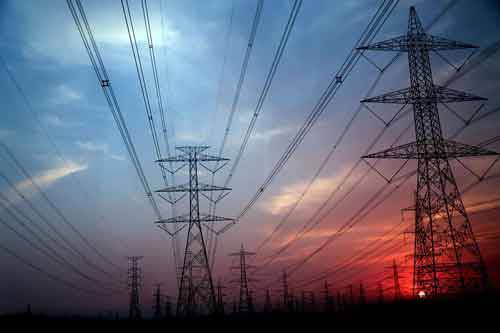Ontario gives electric cars an $80M plug
By Ottawa Citizen
Substation Relay Protection Training
Our customized live online or in‑person group training can be delivered to your staff at your location.

- Live Online
- 12 hours Instructor-led
- Group Training Available
McGuinty said the province is encouraging private and public sector participants to propose ways to build and test new facilities. The province would then provide seed money to selected projects.
Few details on the new car charging stations were available, including when the first location will be active.
“We’ll drive as hard and as quickly as we can,” McGuinty said Tuesday when pressed on details.
But one U.S. expert said OntarioÂ’s move was more about public relations than anything else.
Electric car batteries take 20 to 24 hours to be charged at 120 volts and 10 to 12 hours using 240-volt electricity.
That means a two- to three-hour electric fill-up would get you roughly 20-per-cent charged, says Brett Smith, a senior research analyst at the Center for Automotive Research in Ann Arbor, Michigan
“Charging stations are very important, but probably in the short term they’re more important for publicity,” says Smith, a specialist in electric vehicles. “Home charging is most critical. Charging at work is second in the pyramid. Third is public charging.”
Smith added that new electric cars, which have ranges of approximately 100 kilometres, will be used more for daily commutes than long-haul trips.
“You’d never drive a Nissan Leaf from Toronto to Detroit,” he said. “It would take a week.”
There are fewer than 10,000 electric vehicles currently on the road in the U.S. In Canada, the number is substantially lower.
The Chevy Volt and Nissan Leaf are both expected to hit the road in Canada this fall. Other vehicles – including the Mitsubishi iMiEV and electric versions of the Ford Transit Connect, Ford Focus and Mercedes Smart – are slated to go on sale this year, according to officials.
Ontario already offers up to $8,500 in incentives for electric car buyers. Owners are also entitled to a green plate that allows them privileged access to high occupancy vehicle lanes.
A government spokesperson offered no details on how the money will be spent or how many stations it would buy.
Paul Gerard said Infrastructure Ontario will begin consultations with “industry experts and get advice on the best way to build, test and expand the availability of recharging stations.”
“Details of how the funds will flow and the timing of projects will be formalized as Infrastructure Ontario receives information through the process,” he said in an e-mail.
The McGuinty Liberal government, just weeks from an election, is positioning itself as a green energy champion. The government introduced controversial legislation in 2009 aimed at kick-starting an Ontario clean energy manufacturing sector through heavy subsidies and domestic content clauses. McGuinty took swipes at his opponents on both the left and the right Thursday, saying the Conservatives “would rip up contracts and do away with those jobs” and accusing the NDP of having “jettisoned” its environmental principals.
One Conservative MPP, Peter Shurman, turned the heat back on McGuinty.
“I think electric cars are great,” said Shurman. “We agree with renewables … but here he is handing out $80 million to build more infrastructure when he hasn’t addressed the basic problems that people in Ontario know exist. The main one is the cost of electricity.”
Toyota announced earlier this month it will be the first major automaker to build electric vehicles in Canada. It will manufacture the electric RAV4 sport utility in its Woodstock plant.











